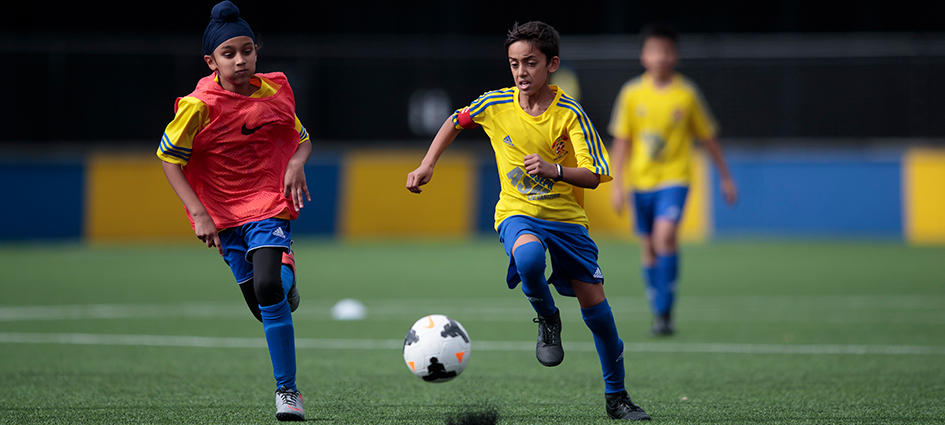Youth Development Phase DNA

Youth Development Phase and the physical corner
- The Boot Room
- 04 September 2020
Football is a game that places high physical demands on players and the Youth Development Phase is a key period in the physical development of players.
Playing the game well requires excellent movement skills and football-related fitness in various situations - twisting, turning, shifting balance, changing direction, multi-directional movements, repeated sprints, body-to-body contact and much more.
Developing physical literacy in a general sense, provides a good base for football skills such as agility, balance and coordination, as well as speed, endurance and strength. As players mature and get more experience of the game, they’ll develop many football-specific movements, such as a full-back’s foot pattern when defending 1v1; a striker running diagonally to open up the space for a through-pass; or a goalkeeper coming through a crowd of bodies to catch a cross.
It's important to remember that the physical corner doesn't work in isolation. All those movements and decisions are affected by the other corners too and are specific to the situation the player finds themselves in during the game.
The Youth Development Phase is a key period in the physical development of the youngsters you coach.
As well as dealing with the increasing demands of the game, the youngsters in the Youth Development Phase are likely to be going through significant physical changes as well. Here's some insight from FA Education physical performance lead, Matt Portas.
It’s such an important time for the youngsters in respect of their physical growth and how their bodies mature and develop. Within this age phase, they could be on their way towards, in the middle of, or already beyond puberty – the variation is huge. They may go through growth spurts, some more intensely than others, and they may gain body mass and face some new challenges and opportunities as a result. All of this may well affect how they play the game.
Remember, each individual is unique. Each young person will develop at different times and different speeds, but they all need to be nurtured through this, often sensitive, period of change.
It’s important that children don't specialise too soon. They should be exposed to a variety of opportunities and experiences, whether that be playing other sports, unstructured play or various formats of football and futsal.
It's also important that players don't carry on playing through pain that occurs during growth spurts and there might be times when children have to participate less as their bodies adjust and adapt. It’s vital to listen to the children and communicate clearly with players and their parents or carers. If a player can't fully participate, try to include them in adapted roles on the pitch or involve them with responsibilities off the pitch during this period.
Here's what England manager, Gareth Southgate, had to say on how the experience players get at a young age can shape their development.
Especially in the Youth Development Phase, it’s important to continually consider the volume and variety of unstructured play, practices and matches that players engage in:
- How much football activitiy do your players take part in outside of organised football?
- What is the typical week of activities for your players? How much, how often, how long?
- How many matches do your players play a season? How much game time does each player get and how much variety do they get in different formats of the game, for example 7v7, 11v11 and futsal.
There is no one correct answer to these questions as it depends on who the individuals are, why they play, where they are in their stages of development and what local opportunities are available. It's important though to consider, reflect and think creatively in order to create a variety of positive experiences which develop physical capability.
In the video below, Matt Portas talks about how to help players build physical capacity:
Physical development does not take place in isolation and often nature takes it natural course – but coaches can help. You’re likely to find significant physical differences across the individuals within your group and they may well change over time.
All players need nurturing, supporting and challenging in order to fulfil their individual potential. Your role is crucial in helping them develop a positive and memorable relationship with football and physical activity.
To find out more, explore our Youth Development Phase DNA playlist.























